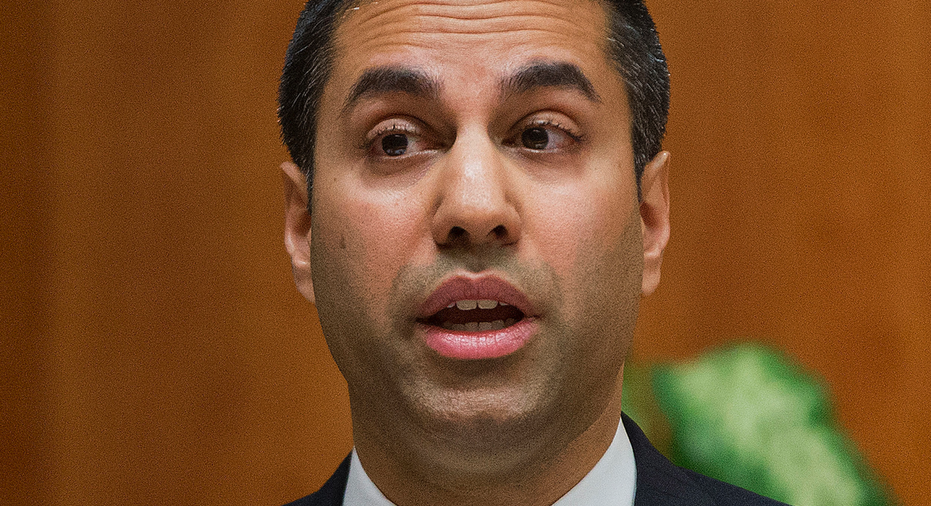FCC head Ajit Pai goes after Hollywood, tech companies

NEW YORK – The head of the Federal Communications Commission defended his plan to undo the country's net-neutrality rules by bringing the culture wars to telecommunications policy.
There has been constant media coverage since Chairman Ajit Pai last week unveiled his plan to gut the Obama-era net neutrality rules, which were meant to keep broadband providers from playing favorites with websites and apps. Tech companies, including Airbnb, Etsy and Twitter, sent him a letter in support of the current rules. Hollywood celebrities are speaking out against his proposal.
So Pai, a Republican picked by President Donald Trump to be the head of the FCC, is pushing back. His targets: the generally liberal bastions of Silicon Valley and Hollywood.
Pai's policies have been more favorable to the phone, cable and broadcasting industries than those of the Obama-era FCC. One criticism of Pai's plan to gut the net neutrality rules is that it will allow phone and cable companies to block some sites and apps while favoring others.
But Pai asserted in a Tuesday speech that internet companies are "a much bigger actual threat to an open internet" because they choose what people see on their services.
He called out Twitter specifically, contending that it takes action — such as suspending accounts or removing their "verified" status — against conservatives more frequently than liberals. He didn't specify who he was talking about, but Twitter this month "unverified" the account of white nationalist Richard Spencer .
Pai also noted that Twitter had blocked Rep. Marsha Blackburn, R-Tenn., from advertising a campaign video, which he said was because it "featured a pro-life message." Twitter said Tuesday that it didn't censor her video but also doesn't want to expose users to "potentially distressing" ads. Twitter later decided to let Blackburn advertise the video, in which she says that she "stopped the sale of baby body parts."
"Websites and apps operate in a competitive environment with low barriers to entry where choice and competition are a click away. This stands in stark contrast to ISPs," said Noah Theran, spokesman for the Internet Association, a trade group for tech companies. Most Americans don't have a choice of home broadband service providers.
Pai also said he was calling out criticisms from Hollywood because of celebrities' "large online followings" that "give them outsized influence in shaping the public debate."
He said comments by Cher , Mark Ruffalo , Alyssa Milano and George Takei in support of net neutrality were "absurd" and replied to them in his speech.



















